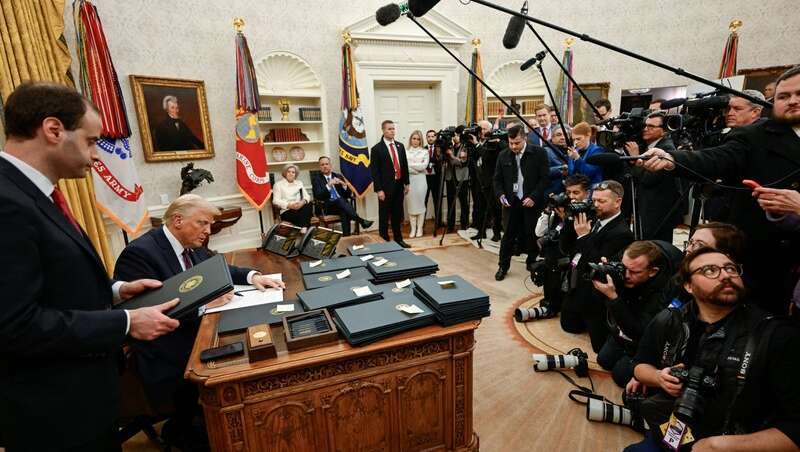
From overturning numerous Federal workforce policy pillars to canceling a well-regarded executive order about how the government should approach artificial intelligence technologies, the new Trump administration has been issuing a small blizzard of more than two dozen executive orders since taking office on Monday that are sweeping away numerous orders issued by President Biden during his term in office.
As the pile of Biden administration policy corpses pile up, it’s worth taking notice of a few major Biden-era tech policy items that continue to be the law of the land – for now at least.
Two Cybersecurity Orders
Most notable on the network security front are both of President Biden’s major cybersecurity policy executive orders.
President Trump has thus far left intact the landmark executive order 14028, “Improving the Nation’s Cybersecurity,” which President Biden issued in 2021. The order, among other provisions, urged Federal agencies to move to cloud services to improve cybersecurity, and also set agencies on a years-long path toward adopting zero trust security architectures.
Also still standing is executive order 14144 issued on Jan. 16, which tackles a laundry list of tuck-in items that aim to engineer further security improvements in at least a dozen major areas including Federal agency systems, cloud services, and software emerging as prominent topics.
The order issued earlier this month gave several Federal agencies marching orders for improvements in software security, supply chain security, open source software, quantum tech prep, digital identity, and the role of AI in improving cybersecurity.
CHIPS Act Implementation
President Trump has also thus far left standing President Biden’s Executive Order 14080 issued in 2022 to implement the CHIPS Act intact, despite the new president’s criticism of the law on the campaign trail.
Congress approved the CHIPS and Science Act into law in August 2022, making up to $52 billion of funding available to incentivize semiconductor manufacturers to establish new manufacturing operations in the United States.
Since then, and even up to the last week of the Biden administration, the Commerce Department was finalizing awards of more than half of the appropriated funding to semiconductor companies large and small to help them create and expand chip operations based in the U.S.
Minimum Wage Order
Also still standing is President Biden’s Executive order 14026, signed in 2021 and establishing a $15 per hour minimum wage rate for Federal contractors.
